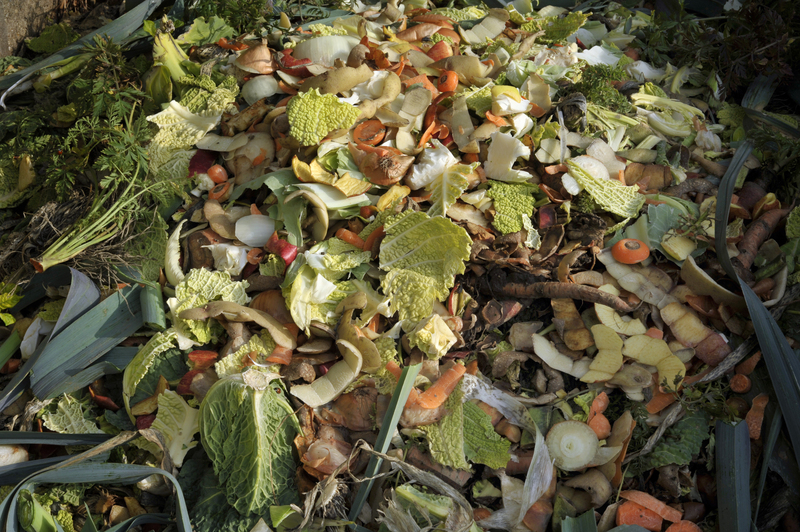Old World Waste Practices
Posted on 30/04/2025
Waste management is critical for a sustainable environment, but it's not a modern concept. Old world waste practices date back centuries, showcasing how ancient civilizations dealt with disposal and recycling. From the burning of waste in Europe to the sophisticated sewage systems in ancient Rome, these practices were designed not only to handle waste efficiently but also to benefit society in various ways.
Ancient Rome: Pioneers in Waste Management
One of the most remarkable examples of old world waste practices hails from ancient Rome. The Romans were pioneers in creating complex sewage systems, known as the Cloaca Maxima, to manage waste. This system, built around 600 B.C., served multiple purposes, from directing stormwater to removing human waste from the streets.

Medieval Europe's Waste Disposal Methods
During medieval times, Europe's approach to waste disposal was less structured. Waste often accumulated in the streets, leading to foul smells and health issues. However, certain towns and cities began to adopt rudimentary waste management systems. Homeowners were required to clean the area around their homes, and fines were imposed for failing to dispose of waste properly.
Recycling Practices in Ancient Cultures
Recycling is not a modern invention. Ancient cultures, particularly in Asia and Africa, practiced recycling and waste minimization. In Japan, for instance, the Edo-period (1603-1868) saw the establishment of a sophisticated recycling system for paper, textiles, and metals. Similarly, ancient Egyptians recycled papyrus, and medieval Islamic societies had systems for repurposing organic waste.
Waste Management in Ancient China
Ancient China had advanced waste management practices that focused on recycling organic waste. Farmers would compost animal manure and human waste to fertilize their crops, which not only kept the environment clean but also boosted agricultural productivity.
The Indus Valley Civilization: Early Sanitation Engineers
The Indus Valley Civilization, which flourished around 2500 B.C., had a remarkably advanced sanitation system. Urban areas were planned with a grid layout, and houses were equipped with private bathrooms connected to a complex sewage system. This proactive approach to waste management prevented many hygiene-related diseases.
Modern Lessons from Old World Waste Practices
While we have made significant strides in waste management with modern technology, there is still a lot to learn from old world practices. They emphasize the importance of recycling, composting, and community responsibility. Incorporating these principles can enhance our current efforts to build a more sustainable future.
Pros and Cons of Old World Waste Practices
Pros
1. Simplicity: Many old world practices were straightforward and didn't require complex technology.
2. Sustainability: Ancient cultures prioritized recycling and composting, reducing their overall waste footprint.
3. Community Engagement: Societies were collectively responsible for waste management, fostering community involvement and shared responsibility.
Cons
1. Health Hazards: Limited technology and knowledge led to inefficient waste disposal methods, causing health issues.
2. Limited Scope: Many old world practices were localized and not scalable for larger populations.
3. Environmental Impact: Some methods, like open burning, had negative environmental impacts.
Tips for Modern Waste Management
1. Prioritize Recycling: Make recycling a standard practice in homes and businesses.
2. Compost Organic Waste: Encourage the composting of organic waste to reduce landfill pressure.
3. Community Programs: Implement community-based waste management programs to foster responsibility and engagement.
4. Educate and Inform: Raise awareness about sustainable waste management practices from both ancient and modern perspectives.

Key Takeaways
- Old world waste practices were diverse, spanning from sophisticated sewage systems to rudimentary recycling methods.
- These practices underscore the importance of sustainability and community involvement in waste management.
- Modern society can learn a lot from these ancient techniques to improve current waste management systems.
Conclusion
Old world waste practices offer valuable insights into how ancient civilizations managed their waste, showcasing both their ingenuity and their limitations. By studying these practices, we can glean lessons on sustainability, resourcefulness, and community responsibility that are just as relevant today. Integrating these old world methods with modern technology can pave the way for more effective and sustainable waste management solutions in the future.
Latest Posts
Planet-Friendly Disposal Strategies
House Waste Removal Made Easy: Top 5 Tools
Hard Rubbish: Identification & Disposal Tips





